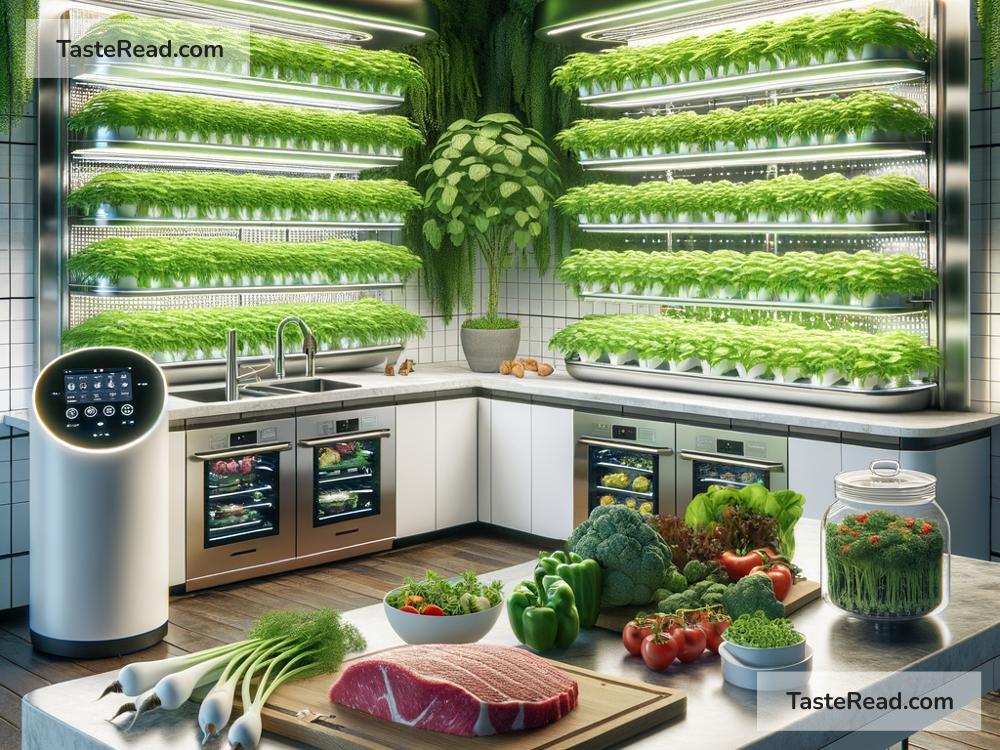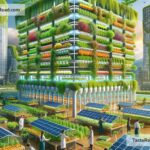The Future of Food and Sustainable Governance: Building a Healthier Planet
As the world’s population continues to grow, the way we produce, distribute, and consume food will play a critical role in shaping our planet’s future. Food isn’t just vital for survival—it’s deeply connected to environmental health, economic stability, and global well-being. However, challenges like climate change, deforestation, resource scarcity, and inequitable access are putting pressure on our food systems. To secure a sustainable future, we must rethink how we govern and manage the food we eat, ensuring it meets the needs of people today without compromising the needs of tomorrow.
The Need for Change
Right now, our food systems face major challenges. Agriculture accounts for nearly 30% of global greenhouse gas emissions, driving climate change and harming ecosystems. The way we grow food often depletes soil, uses excessive water, and relies on chemicals that pollute land and rivers. At the same time, millions of people around the world still experience hunger or malnutrition, while others deal with health problems caused by overly processed diets.
To tackle these issues, governments, businesses, and local communities need to work together to create a food system that prioritizes sustainability. This means producing food more efficiently, protecting natural resources, and ensuring that everyone has access to nutritious meals.
Innovations Shaping the Future of Food
-
Vertical Farming and Urban Agriculture:
Imagine growing fresh vegetables in skyscrapers or city rooftops. Vertical farming uses stacked layers to grow crops indoors, requiring less land and water than traditional farming. Using technology like LED lights and automated watering systems, it allows farmers to grow food year-round, closer to where it’s consumed. Urban agriculture is another exciting trend, transforming unused city spaces into vibrant gardens. -
Alternative Proteins:
Meat production is one of the most resource-intensive industries, contributing to deforestation and emissions. To ease this burden, scientists and companies are exploring alternatives like plant-based protein, lab-grown meat, and insect-based food. These options require fewer resources and reduce environmental damage, offering a more sustainable way to meet our hunger for protein. -
AI and Precision Farming:
Technology like artificial intelligence (AI) and precision farming tools can help farmers make smarter decisions. Sensors and drones can monitor soil health, weather conditions, and crop growth, allowing farmers to use just the right amount of water, fertilizer, and pesticides. This reduces waste, protects the environment, and improves yields. -
Food Waste Elimination:
Globally, we waste about one-third of the food we produce. This wasted food contributes to greenhouse gas emissions and piles up in landfills. Governments and organizations are working on policies to minimize waste, like encouraging composting, improving supply chains, and finding ways to transform food scraps into products like animal feed or biofuel.
The Role of Sustainable Governance
Sustainable governance is about creating policies and systems that promote responsible food production and consumption. It ensures that the decisions we make today benefit both people and the planet in the long run. Here are key areas where sustainable governance can drive change:
-
Supporting Local Farmers:
Small-scale farmers often struggle to compete in global markets, even though they play a big role in feeding communities. Governments can offer subsidies, training programs, and technology to help farmers grow crops more sustainably. Supporting local farmers also reduces the need for transporting food long distances, lowering carbon emissions. -
Promoting Responsible Consumption:
Education campaigns can teach people about the importance of eating sustainably—choosing local, seasonal, and plant-based foods that have lower environmental impacts. Governments and businesses can encourage sustainable behaviors, like using less plastic packaging and reducing single-use food containers. -
Regulations for Big Food Corporations:
Large food companies have a massive influence on global food systems. Governments can enforce rules that require companies to limit their environmental impact, source ingredients ethically, and reduce food waste. Partnerships between businesses and environmental organizations can also drive innovation. -
Global Collaboration:
Food systems are deeply interconnected. A drought in one country can lead to food shortages and price increases across the world. To address this, countries must work together to exchange knowledge, share resources, and develop joint solutions to global challenges like climate change and hunger. International agreements can promote sustainable farming practices and reduce harmful subsidies.
What Can You Do?
Sustainable governance isn’t solely the job of governments—it requires participation from all of us. Here’s how individuals can contribute to the future of food:
- Choose sustainable products: Buy locally grown food, support farmers’ markets, and look for eco-friendly products.
- Reduce food waste: Plan meals, store food properly, and compost scraps instead of throwing them away.
- Eat more plants: Shifting to a diet rich in vegetables, fruits, beans, and grains not only benefits your health but also reduces the environmental impact.
- Get involved: Advocate for policies that prioritize sustainable agriculture and food equity in your community.
A Shared Goal for a Better Tomorrow
The future of food depends on both innovation and responsible governance. By embracing technology, reducing waste, supporting local communities, and implementing sustainable policies, we can create a food system that’s healthier for people and kinder to the planet. Everyone—governments, businesses, and individuals—has a role to play in this journey toward sustainability.
The choices we make in the coming years will determine the future of our world. Together, we can build a system that nourishes humanity while preserving the earth’s precious resources for generations to come.


